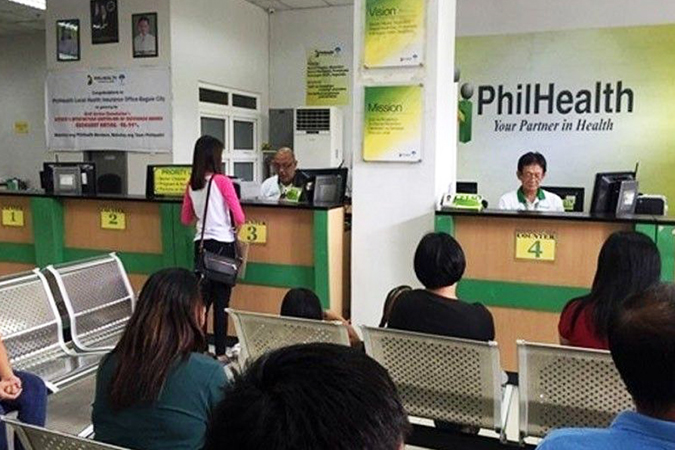Pandemics of ignorance and populism
By Marian Pastor Roces
Part 2
THE NUMBERS are staggering: 99.9% of travel ground to a halt in Japan; the World Food Program (WFP) says that some 130 million people — in addition to the 135 million already facing acute food shortages prior to the pandemic — face hunger this year. The chief economist of the WFP, Arif Husain, estimates that 265 million people may face starvation.
More than a million Americans are infected. Close to 70,000 Americans have died from COVID-19 as of the first week of May. As US pundits intone incessantly now, this figure exceeds the number of deaths from the Vietnam War, which lasted over 19 years. And the 26 million who are suddenly unemployed have filed for assistance from the US government insurance system.
Half of humanity is confined to home. Der Spiegel writes that “180 countries that only a few weeks ago were experiencing economic growth and rising prosperity have now plunged into a deep recession.” The World Trade Organization estimates that “global trade will shrink by between 12 and 32 percent — numbers that are so unbelievable that they leave one gasping for breath.”
The Philippine government will run out of money in a few months. The Philippine President has said as much. In television appearances, he acquits himself of culpability for possible economic collapse by bemoaning the unexpectedness of it all. He is in this particular way a part of the Philippine majority — likely a global majority — that can only absorb what is going on by the slap-in-the-face impact of economic standstill and imminent hunger. This common cluelessness, of course, does not a leader make.
In any case, the global experience of the pandemic is now described as “radical uncertainty.” Yet this uncertainty need not have been radical. Nor should it have been unexpected. While most of the relevant material is indeed arcane and impenetrable to most, enough science and advocacy have been circulating in the global public sphere for governments to include in scenario building.
No leader anywhere should be able to feign or hide behind confessed ignorance. Nor mount a bully pulpit to spout the opposite: pretend-knowledge. Professed ignorance and pretend-knowledge are the same thing. This two-faced spin is a staple of martinets pushing a repressive agenda. Unhappily, it is recyclable for use in different times and places: inevitably to quash public backlash against cavalier attitudes to civil liberties, and the poverty and hunger produced by the deeply anti-people heart of populism.
Autocrats use rhetorical strategies because it is typically their core talent. This is, granted, their genius — dark, but it is what it is. Rhetoric is thought to replace the hard, skilled work of governance.
It should nevertheless be obvious by now that the genius for disinformation shared by all autocrats impairs the ability of their teams to face down catastrophe: a pandemic, to state the obvious. The campaigns to alter reality, essential to installing tyrants to power, careen wildly upon contact with cataclysmic misfortune. Ultimately, spin doctors cannot spin the fact of mass die-off — in this case, each a painful and unexpected death of an exotic disease that can take down anyone, across class and other divides; and, experienced alone, assaulting the human need for community.
COVID-19 will be only overcome in a body politic in which precision information circulates like oxygenated blood through veins and lungs. Each citizen and transient stays healthy only through a consistent supply of evidence-based knowledge. In the early, crucial days of the contagion, this supply of truth had not been available — like the scarcity of personal protective equipment (PPE), food, hospital equipment, and medicine in the Philippines, the United States, Venezuela, Brazil, China, among other countries run by populists with an autocratic bent.
These are connected and co-dependent scarcities. The pandemics of ignorance and populism created in and released from laboratories and factories of lies in Russia, China, the Philippines, the US (to name the most prolific and venal) systematically broke down the scientific formulation of truth. It was hardly possible, living within architectures of disinformation and confusion that they imagined they could control, for autocratic governments to grasp signs of a pandemic outbreak and to rally the sharpness to act within a narrow window of time given to each country depending on the vectors of contagion. Lack of PPEs is merely a symptom of disconnectedness from scientific wisdom.
It was hardly possible for deliberately addled populations to have figured quickly what is to be done. In what will certainly be a durable case study for future analysis, the disinformation campaign waged by the state in the Philippines to create horror around the anti-dengue vaccine Dengvaxia, in order for the present populist president to politically destroy his neoliberal processor, produced more than widespread fear of vaccines.
Aside from a new outbreak of polio in 2019, the Dengvaxia scare promoted distrust of the health sciences. The COVID-19 pandemic could not have come at a worse time to Filipinos, who, in the last four years, have been fear-mongered to recoil from a modern health delivery system that has been a global model for a century. It is not far-fetched to suppose that the high mortality figures for doctors and medical service providers during these pandemic issues is likely as an unexpected side outcome from the same deliberate erosion of respect and admiration for their field.
Dismally, there is no room for hope to be found in unpacking the conjoint DNA of the pandemics of ignorance, populism, and COVID-19. Xi, Duterte, Trump, Erdogan, Modi, Bolsonaro, and their ilk are consolidating their political fortunes by hothousing yet another pandemic of a new strain of an old plague: an anti-poor regime of truth.
Among the early signs of this revitalized contagion is a recent pronouncement by an advisor to the Philippine President, that the poor should be allowed to go back to work because they are “somehow resilient to the virus” — as unscientific, class-entitled, and heartless as it gets. Once more there is no antidote.
To read part one of this article, go to https://www.bworldonline.com/pandemics-of-ignorance-and-populism/
Marian Pastor Roces is an independent curator and critic whose research interests include international art events, museums, identity politics, cities, and clothing. She is the founder and principal of TAO, Inc., a museum and exhibition development corporation.




